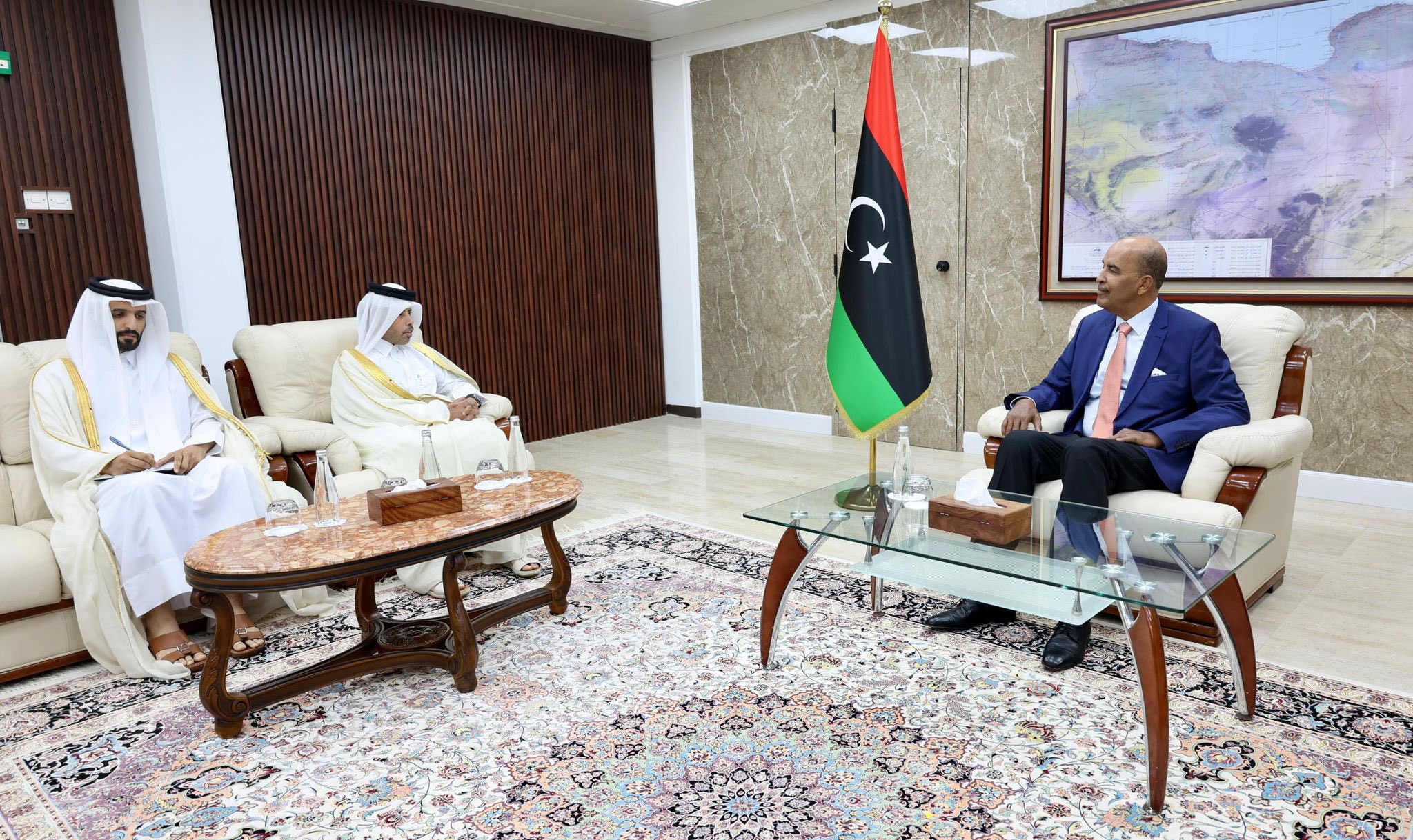Libya has faced political unrest since the 2011 overthrow of long time ruler Muammar Gaddafi amid mass pro democracy protests, with periodic clashes occurring between different groups.
Qatar has reiterated its support for Libya’s national reconciliation during meetings between its ambassador Khalid Al-Dosari and several Libyan officials in the capital Tripoli.
According to Qatar’s foreign ministry, Al-Dosari separately met on Monday with the vice presidents of Libya’s Presidential Council, Abdullah Al-Lafi and Musa Al-Koni.
“The two meetings reviewed bilateral cooperation relations between the two countries,” the Qatari foreign ministry said.
A separate statement by the Libyan Presidential Council said the discussions focused on “the latest developments in the national reconciliation file” and “the work of the preparatory committee for reconciliation.”
“The Qatari ambassador affirmed that his country stands by the choices of the Libyan people, and everything that leads to the stability of Libya and its territorial integrity,” the statement said.
Al-Lafi also “stressed the need to intensify local and international efforts” to break Libya’s political deadlock and pave the way for elections.
Libya has faced political unrest since the 2011 overthrow of long time ruler Muammar Gaddafi amid mass pro democracy protests, with periodic clashes occurring between different groups.
Nine people were killed and 16 others were wounded on Friday following clashes between two armed factions in Tajoura, east of Tripoli, which lasted for hours before it was contained.
Libya has been split between the United Nations backed Government of National Unity in the capital Tripoli and the rival administration backed by warlord Khalifa Haftar that controls the eastern part between Benghazi and Tobruk.
In 2019, Haftar launched a military campaign to capture control of the capital city of Tripoli. The Government of National Accord, backed by Turkish forces, had reclaimed the capital in 2020 following intense fighting against Haftar, who was backed by the United Arab Emirates, Egypt, and Russia.
Presidential and parliamentary elections have been delayed numerous times since 2014.
In March, Libyan leaders from the East Libya based parliament, Tripoli based High Council of State, and the Presidency Council agreed to form a unified government that would supervise the long delayed elections.







